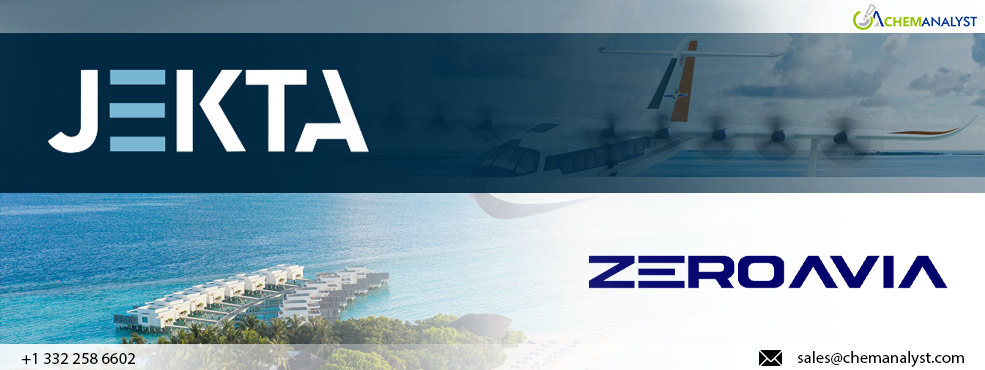Welcome To ChemAnalyst

JEKTA, the Switzerland-based developer of the PHA-ZE 100 amphibious aircraft, has announced that it will use ZeroAvia’s fuel cell power generation system (PGS) technology to showcase a fuel cell version of its electric amphibious flying boat design. This collaboration aims to integrate the system into the PHA-ZE 100 variant as it becomes available on the market.
As battery technology progresses, JEKTA remains committed to exploring all possible options to improve the range and payload of its zero-emissions aircraft. With ZeroAvia’s fuel cell PGS, the PHA-ZE 100 is expected to achieve a range of up to 500 or 600 kilometers and increase its payload by up to one tonne, further enhancing the airframe's capabilities. Additionally, the hydrogen fuel system could reduce operating and maintenance costs, offering a lifespan of up to 20,000 hours. Through their close collaboration, JEKTA and ZeroAvia will develop and certify an integrated PGS, which will include inverters, electronic components, and a hydrogen tank and fuel system.
George Alafinov, CEO of JEKTA Switzerland, stated: “Partnering with ZeroAvia to develop an appropriate fuel cell system allows us to offer our potential operators the choice between two fuel sources. The hydrogen system provides a viable alternative to electric battery power, significantly extending the range of our PHA-ZE 100 and making it ideal for operators on longer regional routes. Conversely, the battery power option is better suited for shorter missions and locations where electric power is more cost-effective and readily available.” He added, “ZeroAvia’s strong market position, secure financing, impressive customer commitments, and well-established infrastructure were key factors in our decision to collaborate with them.”
ZeroAvia is currently testing a prototype of its hydrogen-electric powertrain (ZA600) in a 19-seat testbed aircraft. The company has developed a range of versatile low-temperature proton exchange membrane (LTPEM) power generation solutions and innovative high-temperature PEM (HTPEM) fuel cells specifically for hydrogen-electric aerospace applications.
Val Miftakhov, Founder and CEO of ZeroAvia, remarked: “The JEKTA team aligns with our vision of integrating clean aircraft propulsion systems into commercial use. We’re observing a resurgence in the seaplane market, and we’re thrilled to collaborate with an innovative company that is pioneering the future of amphibious aviation. We see tremendous potential in developing zero-emission amphibious flights, and we believe hydrogen-electric propulsion will be crucial to this market.”
ZeroAvia is actively engaged in global hydrogen infrastructure projects and has formed partnerships with nearly 20 airports to explore operational concepts and the hydrogen refueling ecosystem necessary for route adoption. The company has also led the testing of electrolyzers for on-site hydrogen generation, hydrogen pipeline technology, and aircraft refueling equipment within airport environments. Alafinov views these elements as crucial for establishing an efficient regional amphibious aviation network and plans to collaborate closely with ZeroAvia to optimize the installation of their PGS in the PHA-ZE 100, as well as to explore infrastructure development with operator customers.
We use cookies to deliver the best possible experience on our website. To learn more, visit our Privacy Policy. By continuing to use this site or by closing this box, you consent to our use of cookies. More info.
